Almost four weeks ago now on October 15th at roughly 11:30pm I found myself laying down in bed, completely exhausted. The reality sunk in slowly that WordCamp Ann Arbor 2016 was over and officially in the past. I experienced a whirlwind of emotions from joy to relief to apprehension to anxiety before quickly falling into a very….very deep sleep.
The backstory
WordCamp Ann Arbor 2016 marked my first year as a WordCamp lead organizer and third time as an organizer. I was actively involved in the previous two years of this event and, after a successful conclusion to the 2015 WordCamp, Ross Johnson asked me if I would consider leading 2016. After some careful consideration, I agreed. In order to comply with restrictions on the number of consecutive years an organizer can be a lead, Ross needed someone else to take on the role and nominated me.
From my perspective, me taking on the role of lead organizer for WCA2 was an interesting choice. I’m not actually from Ann Arbor for starters. I live in the next county over, about 45 miles away from the U of M campus where our event takes place. We also had a large group of co-organizers, any number of whom could likely have lead a successful camp. But in the end we talked it over and decided that, especially because of that awesome group of co-organizers, we could make it work and I went all in.
Taking on the burden of organizing a WordCamp for the Ann Arbor community struck me as a very serious responsibility. Ross Johnson and Declan O’Neill have been organizing a meetup there since years before I even knew what PHP was, let alone WordPress. They’ve done a tremendous job helping people of all kinds with incredible consistency all these years and I am grateful to them for that. They allowed me to come and speak at their meetup back in early 2014 and have inspired me to do more with the Jackson WP meetup community which I am also an organizer of. I’ve felt privileged to participate in the Ann Arbor WP community and humbled to take on this lead role.
Early planning
Collectively, we all learned a lot from our 2014 and 2015 events. So before we made any big decisions and got 2016 rolling we had some discussions about how to make this year our best yet. There were lots of points discussed but I’ll just highlight a few:
- We should have multiple days. In 2014 and 2015 we put on single day events. We determined the demand was great enough and resources were sufficient to add a second day.
- We can sell more tickets. In 2014 we sold 150 tickets and in 2015 we sold 250. Both years we sold out early and had waiting lists greater than 50 people. We talked it over and, after selecting a venue which could accommodate a larger number, we decided to set our ticket cap at 400.
- We have to focus on the sessions. It is important to note that we really did have great sessions in our first two years and amazing speakers. But after reviewing the survey results and observing that almost all of the feedback we received, good or bad, related to the sessions, we really took to heart the fact that they are the reason most attendees show up and cannot be under-appreciated.
Those were a few of the bigger takeaways for us. But there were a few other considerations that went into planning this event. As an organizing team, there were a number of things we all agreed upon as important for our unique community and WordCamp. Aspects that may not apply to every other similar event but were values we all shared and really influenced the direction we decided to go.
One factor that I especially considered important: WCA2 was the only WordCamp in the state of Michigan in 2015 and 2016. This isn’t because there’s no demand. For completely understandable reasons, Detroit, Grand Rapids and other large cities in the mitten have been unable to assemble a WordCamp since GR did in 2014. I’m super passionate about our wonderful state and all the various vibrant communities scattered across it. I was very aware that most Michigan communities would be interested in participating and wanted to do everything I could to bring people together. I also hoped to inspire some of those other communities to start or reboot their own WordCamps because Michigan needs it. Seriously. Ohio’s making us look bad here.
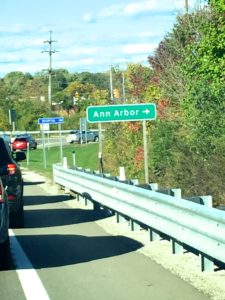 Another element we valued highly: Our beautiful city. Though I’m not a resident of Ann Arbor I do share an affection for it as do all the organizers of WCA2. And that is not surprising because it’s an awesome town. Ann Arbor is beautiful with so many unique and compelling qualities. The idea of putting a spotlight on downtown A2, especially for our out-of-town guests, greatly appealed to all of us and we worked hard to make that happen. I’ve been to many WordCamps which were not as privileged in their location choices as we were and ended up stuck on the outskirts of town with few opportunities to involve their local attractions. We didn’t want that to be us so we opted to stick with venues in the heart of the city and to include as many local activities and venues as possible.
Another element we valued highly: Our beautiful city. Though I’m not a resident of Ann Arbor I do share an affection for it as do all the organizers of WCA2. And that is not surprising because it’s an awesome town. Ann Arbor is beautiful with so many unique and compelling qualities. The idea of putting a spotlight on downtown A2, especially for our out-of-town guests, greatly appealed to all of us and we worked hard to make that happen. I’ve been to many WordCamps which were not as privileged in their location choices as we were and ended up stuck on the outskirts of town with few opportunities to involve their local attractions. We didn’t want that to be us so we opted to stick with venues in the heart of the city and to include as many local activities and venues as possible.
There were a handful of other aspects to the event which we agreed to emphasize as well including better engagement of new attendees, investing in quality swag, getting more sponsors to attend the event and doing a lot more local outreach. Plus many, many other things. In short, we really wanted to take our WordCamp to the next level across the board and strongly believed we had few barriers to prevent us from doing so.
Getting the ball rolling
Of all the things we did right, nothing was more important and made a bigger difference than the fact that we started early. It cannot be understated. Within one month of the completion of WCA2 2015 we were holding organizer meetings and scouting venue options. Within a couple months from that we had dates picked and began soliciting speaker and sponsor applications. Those three items (venue, speakers and sponsors) are so much better and easier when done early. Our venue choices we discovered were actually more limited than we’d like despite us inquiring eleven months in advance. But we still managed to book some nice places and resolved to begin the process even earlier next year (which we’ve already done).
There is no question though that we scored big time in the speaker and sponsor department this year and I attribute a lot of that to starting very early. We’ve learned that people appreciate being able to plan ahead and both speakers and sponsors tend to have a first-come-first-served approach to putting events on their calendars. We did a really decent job this year and for a solid three months only WordCamp US had a confirmed date farther in advance than our camp.
Bumps in the road
All things considered, we didn’t encounter too many issues during the first ten months of planning. But there were a few things which gave me cause for concern and threatened to be a bigger deal than they actually came to be.
The first problem was very small but it came in the form of a strongly worded email from WordCamp Central informing me that I was doing some things a little out of the recommended order. Specifically I had moved forward in a few areas before actually getting final budget approval. This came as a surprise to me at the time as I had expected a little more engagement from Central along the way but ended up getting caught up in all the busy work and neglecting their prescribed process. I later found out that there is a shortage of mentors for new organizers which contributed to the minimal communication we received.
We also experienced some challenges with securing our venues which at times made me nervous. I’ll spare readers the intimate details but it got complicated. Lots of paperwork, many revisions, many delayed responses from various parties, many months wondering if we would ever be done. Huge thanks are due to Steve Beyer who’s persistence and dedication made seamless what may have otherwise been a catastrophe.
Probably the most noteworthy setback during the planning was, within our first few months, being informed that three separate organizers could not be actively involved this year. Each had been very helpful and handled large responsibilities over the previous two years and each had a completely unique and understandable reason for taking a hiatus. We were definitely very fortunate to be able to find a few new volunteers who were willing to take on more responsibility as well as the rest of the organizing team managing to share the increased burden. I was briefly concerned given our very ambitious plans for 2016 but in the end everything worked out well and our group is actually much better off now with the addition of new organizers and volunteers who may otherwise not have been tasked with such meaningful duties.
Recruitment Success
Organizing a WordCamp is a lot like organizing a sports team. It’s all about recruiting. This year we followed coach Harbaugh’s lead and invested heavily in recruiting all year long. I traveled to numerous WordCamps and other related conferences across the US and went out of my way to personally speak with many potential speakers and sponsors. Everywhere I went I evangelized for our camp, preaching to all who’d listen of the beauty of Ann Arbor in the fall, our consistent ability to rapidly sell our tickets and hints at our elaborate plans for the next event. I shared rave reviews from past attendees and shamelessly dropped names of prominent speakers already verbally committed to WCA2 2016. I may have been a little over the top at times and perhaps a broken record to some. But I was committed and it paid off.
Speaker recruitment
Admittedly, I was scared for about a month. We opened our call for speakers very early compared to most camps (about nine months before the event) and the applications came in slowly. I checked our applications frequently and there was what felt like a long period of time where I thought much of my/our efforts had made little impact.
But eventually the apps did come. One by one, as our arbitrarily defined speaker call deadline drew nearer, new session proposals poured in. Within a matter of a few weeks I went from deeply discouraged to elated by the volume and quality of the applications we received. I frequently found myself during that time chair dancing at my desk and hurrying to message my co-organizers excited messages on Slack about each new prospective presenter.
By the time we officially closed the call for speakers, we all knew we had an incredible lineup. We needed 40 speakers and finished with over 70 applicants.
Sponsor recruitment
Having not been intimately involved in any budget related duties prior to this year, I didn’t really know what to expect. During my budget review with Cami a goal for local sponsorships was set and I nervously hoped we could pull it off. But any apprehension was short-lived. We met our goal almost immediately and ended up raising more than three times the amount we needed to break even on our minimum required expenses.
Building the schedule
I spent a lot of time on the schedule. I mean a lot. The session schedule is perhaps the single most challenging task of the entire process. Especially for a camp as large as ours, creating an optimal arrangement is stressful, time consuming and, at times, feels thankless.
Setting the stage a little, we had already identified based on our survey results from previous years that sessions really matter. Like ten times more than anything else. People come for the sessions. They expect sessions to be informative, inspiring, professional and including no perceptible sales pitches. One could certainly argue that this is a lot to expect from a community event where all speakers are volunteers and few have any notable public speaking experience. But it doesn’t matter. People still expect great sessions.
So I took it upon myself to make sure we had a worthy schedule. This was both easy and difficult at the same time. It was easy because, as I mentioned already, we were very fortunate to have a large number of qualified applicants. It was difficult…for a lot of reasons. Let me describe some of the considerations that go into building out the session schedule:
- Serving a diverse audience. At every WordCamp we have attendees of all kinds using WordPress in countless different ways. Ensuring that there will be something on the schedule for everyone who attends is no easy feat. Especially when you consider the fact that audience diversity is not as simple as Users and Developers. Nope. There’s also designers, business owners, marketers, system administrators, bloggers and more. And each of those audiences could be broken down much further. “Developers” is completely inadequate as there are both frontend developers, backend developers, plugin developers, theme developers, javascript developers, app developers and more. Plus all of these audiences are multiplied by the skill level factor (beginner, intermediate, advanced, etc.) so the true number of audiences we are attempting to serve is actually huge.
- Balancing local and non-local speakers. For many reasons, it is advisable and strongly encouraged to emphasize local speakers for a WordCamp. In many cases this is difficult but nonetheless, it is important to make sure the local community is represented on the stage and folks from the area are given a chance.
- Maintaining a diverse lineup of speakers. In my first year of involvement with a WordCamp, I did not appreciate how truly important this is. We looked at our apps, chose the best candidates and called it good. That year we’d only received session proposals from three women and we did end up approving all of them. But the comments about the lack of women speakers reminded us that we could still be doing more. Since then we’ve really done a lot to reach out, especially in our local community, for more speaker diversity and will continue to do so. It is very important and is very much noticed.
- Breaking new ground while still covering the fundamentals. It is definitely undesirable to put together a schedule which contains nothing fresh and new. WordCamps aren’t meant to just be clones of each other. We definitely seek to inject as many cutting edge, innovative, forward thinking presentations into our event so we can offer material for everyone including veteran attendees while also helping move our community into the future. But at the same time, there are always many, many new users at events who have not yet learned what a widget is so fragment caching and WP-CLI don’t serve them at all. It is important to offer both things that are new and exciting and the basics which new users must still absorb.
- Personal relationships and experience. I get around a lot in this community. WCA2 2016 was my 20th WordCamp and that doesn’t count numerous other non-WordCamp WordPress conferences I’ve attended plus countless meetups and an active online presence. I’m in lots of Slack teams and all over Twitter. I’ve seen everyone speak either in person or on WPTV. So when we get our speaker applications, it generally includes only a small percentage of people that I don’t know personally or at least know of. Now this doesn’t mean that I am giving my friends preferential treatment. It only means that when I’m completely dedicated to making sure every last session is truly valuable to our attendees, I don’t take many chances. If an application comes in from someone I don’t know, I do everything I can to learn about them. I ask other people, I research them online, I even reach out to them directly. But if I can’t find enough to give me a high degree of confidence that they’ll make our attendees glad they came, I’ll probably not take the risk. For what it’s worth, I always offer those speakers opportunities to speak at our local meetups on other occasions too so that we can get to know each other better. My point is mostly that I don’t take chances with the single most important aspect of the entire event.
- Logistics. Knowing the exact dates and times that applicants are available can be an important factor. We had numerous speakers who were not arriving until after the first day’s sessions were concluded. For this reason I ended up scheduling primarily local speakers on the first day.
- Reviews from previous years. Coming back to my point about experience, we at this point are blessed with a decent amount of data which can help us make good decisions about speaking assignments. Most of our speakers from previous years end up re-applying the following year so looking back at the comments received from attendees about their sessions proved helpful at times. We had glowing comments which boosted some speakers chances and remarks about lack of preparedness and selling for others which reduced their odds of being selected.
Eventually, we did put together a schedule which we could be proud of and it gave us a lot of encouragement and momentum heading into the late planning stages.
Late planning
As summer ended and fall began, despite all our efforts and early start, it seemed as though the event had suddenly snuck up on us and a general lack of preparation was perceived by the organizing team. I’m not sure exactly how but somehow we still found ourselves scrambling in the final weeks to wrap up the finishing touches.
One push during the last month before the event was towards ticket sales. As I mentioned previously we had ambitiously set our attendance goal at 150 more people than the previous year. With four weeks remaining we’d sold barely half our tickets. So we worked together to reach out to other local meetups, talked to sponsors for help, put up fliers and even did some Facebook advertising. In the end we sold 340+ tickets which was short of our goal but not so short that it adversely affected our budget or really bothered us much at all.
One other item I look back on with frustration: Our speaker gift selection. I’m not terribly dissatisfied with what we came up with in the end (though we can always do better) but it took a long time to agree on a plan. I personally did a poor job of letting go of this responsibility and Steve Bennett had to exercise a lot of patience in order to eventually get a consensus. Over the course of the summer the topic was brought up countless times. Each time new ideas were suggested and a few old ones shot down but no decision was made. This went on until deadlines from our vendor forced us to make a decision. By that time we found ourselves with more limitations than we’d like and most of us generally felt like we’d settled.
The home stretch
During the final two weeks, we were all predictably busy. For myself and my colleagues at Real Big Marketing it was a particularly busy time as we were also in the process of putting the finishing touches on a premium plugin we’d been working on for months and doing everything we could to make the launch successful and profitable. I was pretty occupied by this effort as building our premium plugin business has been something I’ve wanted to do for a very long time and this was a big step towards that.
Our volunteers were exceptional during this time. My wife Ashley supported me in many ways with content production, creative input, scheduling and general accountability. Ross as always helped in more ways than I can count and truly put his extensive WordCamp organizing experience to good use. Ben Cool did a great job getting all volunteers engaged and scheduled. Declan did a tremendous job with sponsors which is evident in the fact that I hardly needed to be involved at all in the process. He just handled it all perfectly. Steve Beyer again came through helping me deal with a minor venue fiasco, eventually solved by Ross. Megin Worsham, a first time volunteer, took the burden of Saturday refreshments off my shoulders and absolutely nailed it.
Those who really stepped up at this stage were many and it made all the difference. Somehow, even though we’d done so much all year long and never really took a long break from planning, we were still swamped as the dates approached.
Shared lodging
I attend a lot of WordCamps and so do many of my friends so it isn’t uncommon for groups of us to coordinate and share lodging. Given that Ann Arbor is 45 miles from my home and I’d need to be out there for four straight days, we decided it would make sense to rent a place in the city. We also thought it would be helpful if we could get a sizable house which could accommodate some of our out of town guests. This turned out to be a great move.
Ashley did almost all the research and coordinating for the house. She found us a perfect space that could sleep almost a dozen people comfortably and was just down the road from our venue. So we booked it and invited many attendees and volunteers whom we knew were coming from far away and needed someplace to stay.
This is definitely something we will repeat next year. Having a house in Ann Arbor gave some of us organizers a place away from home to dedicate 100% of our attention to the final tasks for WordCamp. We folded t-shirts, printed handouts, packaged speaker gifts and more. Plus we extended a warm welcome to numerous guests. Many of our guests were speakers and it proved to be a great place for all of us to find a private room and rehearse our presentations. Adam and I were up late each night in the basement practicing WP Battles Round 3.
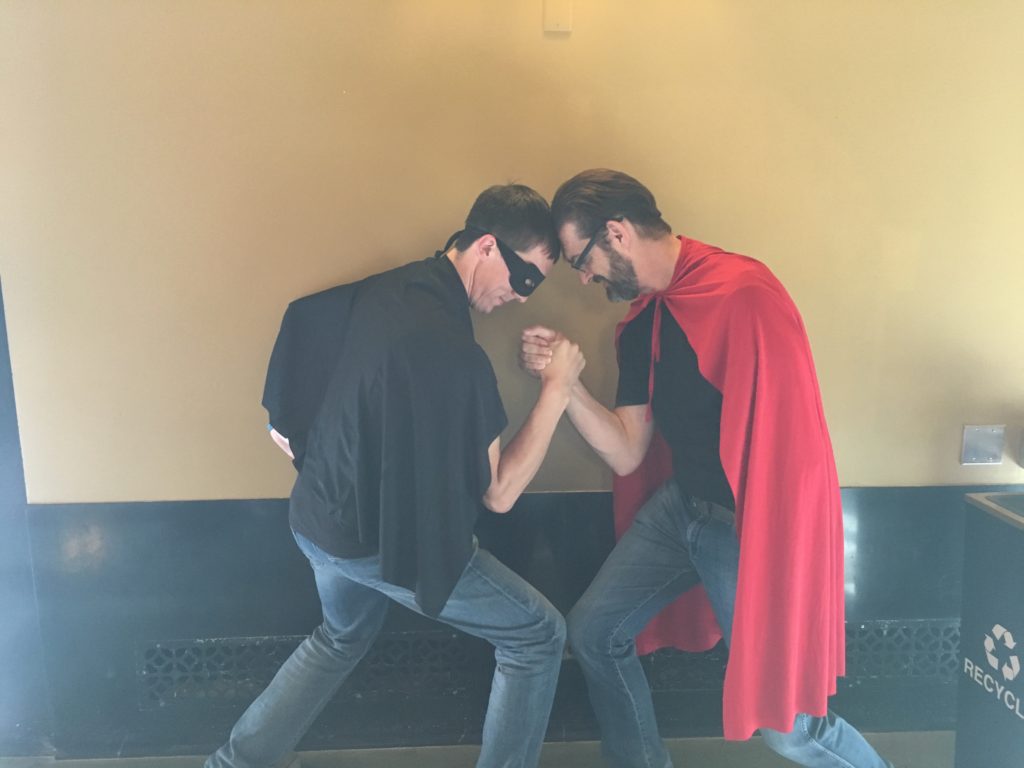
WordCamp Ann Arbor 2016
Wow. For a WordCamp recap post it took me along time to get to the actual WordCamp. Ok, here goes. I’m going to go over everything by category.
Sessions
Why not start with the most important part? As I mentioned earlier, the sessions are everything. We invested heavily in terms of time and energy spent recruiting great speakers, preparing them, coordinating them and holding them accountable.
Diversity
Diversity is challenging, there’s no doubt. Experience has taught us that when we review our submissions at the end of our call for speakers, it will not be incredibly diverse by default. But we’ve learned that with some outreach over the course of the year prior, we can improve upon that. So we did a lot this year to talk with and reach out to more potential women speakers especially. That helped and we also had our largest overall number of submissions (71 unique applicants, 100 submissions) so our choices were the best we’ve yet seen.
But it’s still tricky and remains something I’d like to improve upon further. Each year we get a little better than before. Here’s our rate of women speakers over the past three years:
- 2014 12%
- 2015 27%
- 2016 28%
As you can see, we still have a long way to go. But diversity of gender isn’t the only consideration. We also want a good mix of local and non-local speakers. I was amazed to receive almost exactly 50% of our submissions from Michigan based speakers so we ended up with just over half of our 40 speakers being semi-local.
Topics
We did much better this year when it comes to topic coverage for multiple reasons:
- We added another half day of sessions.
- We increased the number of lightning talks.
- We deliberately sought topics.
Regarding lightning talks, I’ve become a huge fan. For other WordCamp organizers I highly recommend them. The reality is, not all sessions are a great fit for the standard time slot (~30 minutes presentation + ~15 minutes Q&A). Some sessions just simply don’t need to be that long and are in fact much better when presented in a condensed format. Since we introduced them last year we’ve received numerous positive compliments from attendees and also from speakers regarding the effectiveness of short sessions and also how well they break up the day. They certainly add a bit to the schedule complexity but I consider the effort well worth the hassle.
The other big difference with our approach to sessions this year was largely de-emphasizing the actual session topics which speakers sent in. In years past, much like most other WordCamps I’ve attended, the session schedule is built by perusing the topics that were submitted and choosing from them. We made sure this time around to provide more guidance to the many speakers who asked what topics to submit (new organizers, expect questions about this a lot), to the many who submitted redundant topics (same as another applicant), and to the several whom we believed could address other needs we had rather than their own suggestion.
Ultimately we were much more strategic and thoughtful when it came to building a session schedule that worked. We wanted there to be something for everyone and to make sure it addressed both the fundamental needs but still had some cutting edge material. Many speakers had one on one conversations with me where we discussed the ideal session topic.
Placement
This was really tough. Particularly for a main day, deciding which sessions end up in which rooms and at which times made my head hurt. We’ve always had multiple rooms which varied in capacity so when planning out the schedule, we’ve always tried to place sessions appropriately so the more popular sessions end up in the larger rooms and more niche topics in smaller rooms. This has been a learning process for sure. Every year we try and every year we get it mostly right. But we inevitably guess wrong on a few which results in a high capacity room looking empty and a low capacity room uncomfortably crowded.
This year was no exception in that a few were not attended as we anticipated but our rooms were all fairly sizable so I don’t believe there were serious issues. Our room capacities were 227, 130 and 50 so I had to guess for each hour which sessions would draw large, medium and small crowds. I tweaked that schedule over and over for a long time before the event. But I’ve learned from past mistakes that it is definitely important.
From these past events I’ve learned a bit about which topics are often popular. I’ve also learned though that who is giving the presentation matters less than I used to assume. I’m deeply immersed in the world of WordPress and for every speaker I know about all of their skills, accomplishments, successes, failures and reputation. When I look at a session schedule I don’t even look at the topic titles at all. I only look at the names. However, I’m very much in the minority. We’ve had high profile speakers before and I naively placed them in high capacity rooms assuming they’d be able to draw a crowd. Doh! Turns out the topic is what fills the seats, at least when it comes to WordCamps.
Preparation
I consider myself a reformed presentation prepping procrastinator. I’m guilty of many times in the past, throwing together presentations at the last minute. But over time I’ve come to appreciate how much of a disservice that practice is to myself, the people who asked me to speak and most importantly the attendees. They especially deserve better. So I’m now a huge fan of preparing speeches well in advance. We basically required it this year. I was not going to be ok with anyone “winging it” this time so to make sure every speaker was well prepared we:
- Selected speakers very early (four months before WordCamp)
- Required slides be turned in to us two weeks before WordCamp
- Reached out to all local meetups and coordinated practice opportunities for all speakers who wanted them
- Personally reached out to every single speaker to talk with them about their session
I believe this made a big difference. Inexperienced speakers benefited from the practice opportunities and veteran speakers benefited from our nagging and low tolerance for procrastination. Anyone who knows me should appreciate by now that joking about how one just threw their slides together last night for today’s event will never make me laugh. Seriously. Not even a little bit funny. That’s unacceptable.
Sponsors
2016 was the first year we really had many sponsors in attendance. We knew this would be the case well in advance and worked hard to prepare for it. In addition to getting far more sponsors in general than we’d even hoped for, we also had a majority of them opt in to attend and setup a table. Some sponsors told me that our attendance had reached a sufficient number which happened to be their threshold for attending whereas our previous years were too small.
Taking care of our sponsors was a huge priority for us. We’ve heard the stories and witnessed some ourselves where sponsors had overall poor experiences at WordCamps and we definitely did not want that to be the case for us. So we put a good deal of thought into finding ways to make their experience positive. I was personally very excited that so many had chosen to attend because I do believe that sponsors being present and engaged at a WordCamp is a major positive for everyone.
Regarding our placement for sponsors, I’d give us a C+. On our first day, we anticipated fewer sponsors bothering to setup tables considering it was only a half day of sessions and a Friday at that. However, most sponsors chose to exercise their right to do so and we ended up pretty cramped. Also, the nature of the session schedule on Friday meant there was very little mingling and meandering time for attendees so the sponsors who came saw a morning rush and not much else. I apologized profusely to them all and did everything I could to help encourage attendees to interact with and thank them.
Our second day was better but not perfect. We again had a space issue due to us ending up with simply more sponsors than we expected. We had our sponsors setup in a modest sized room which was busy almost all day long but did get pretty crowded and I think could have been better. We’re planning on putting them in a much larger room next year.
We also added three specific “draws” to the sponsor room in order to encourage attendees to not only stop by there but also directly interact with the sponsors:
- Happiness Bar: For most of the event, we had the Happiness Bar located in the same room as the sponsors and even had some sponsors volunteering to help with it.
- Espresso bar: Everyone needs coffee and we managed to get a local coffee vendor and his baristas to come and serve complimentary coffee, espressos, lattes, cappuccinos, cocoas and more. This was an attendee magnet and will definitely return in 2017.
- Scavenger Hunt: We put together an activity where attendees were awarded prizes for taking specific pictures.
Scavenger Hunt
One of our bigger experiments this year was the city-wide scavenger hunt. It was a creative idea from Ashley who worked really hard to put it together. It was meant to serve three purposes:
- It gave attendees something extra to do during the time where no sessions were scheduled.
- It encouraged attendees to experience more of Ann Arbor.
- It increased engagement between attendees and sponsors.
We listed out places and things to photograph around town and then instructed attendees to claim prizes from sponsor tables at WordCamp. Each sponsor purchased or supplied their own gifts which were given exclusively to scavenger hunt participants.
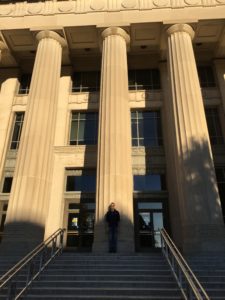 I had no idea what to expect for participation. I wasn’t sure many attendees would try it or even that sponsors would be interested in the idea. On day one, I printed out the scavenger hunt guides to pass out to attendees at registration and actually ended up supplying a pretty conservative number assuming the majority of people wouldn’t be interested. Registration was a little hectic that morning for other reasons and by the time lunch rolled around and sessions concluded, I went to check and see how many of the scavenger hunt printouts remained and was very surprised to hear that not only were they all gone but people were asking for more. Apparently there was even more interest than I’d hoped for.
I had no idea what to expect for participation. I wasn’t sure many attendees would try it or even that sponsors would be interested in the idea. On day one, I printed out the scavenger hunt guides to pass out to attendees at registration and actually ended up supplying a pretty conservative number assuming the majority of people wouldn’t be interested. Registration was a little hectic that morning for other reasons and by the time lunch rolled around and sessions concluded, I went to check and see how many of the scavenger hunt printouts remained and was very surprised to hear that not only were they all gone but people were asking for more. Apparently there was even more interest than I’d hoped for.
The next day I checked with each sponsor to make sure they had prizes to give away and knew the rules. Everyone involved, at least when interacting with me, seemed excited about the activity and well prepared. Throughout the day I checked with the sponsors constantly to make sure they had everything they needed and were engaging attendees. I also checked to see how many prizes they were giving away. I soon learned that there were two notable oversights on the scavenger hunt: 1. One of the sponsors we thought would be there didn’t come so attendees were looking for them to claim a prize and 2. One of the sponsors who did come was not giving away very many prizes due to the challenges designated for them being harder than the rest. We had tried to make all of them equally difficult but apparently one was a little more so than the others.
In the end, we got a lot of great feedback from attendees and the sponsors regarding the scavenger hunt. If you’re curious you can read more about and download a PDF of our scavenger hunt here.
Venue
For 2016 we decided to try a new venue for the third year straight. We also decided to add a second day to our WordCamp for the first time. Unfortunately though, our chosen venue was not available on two consecutive days anytime close to when we wanted to have the event. So we decided to just have our Friday sessions at last year’s venue which is located in the same general area. I wasn’t very happy about this but it was our only option. Thankfully we won’t have this problem in 2017 as we learned our lesson and inquired even earlier so Rackham is already locked in for two days.
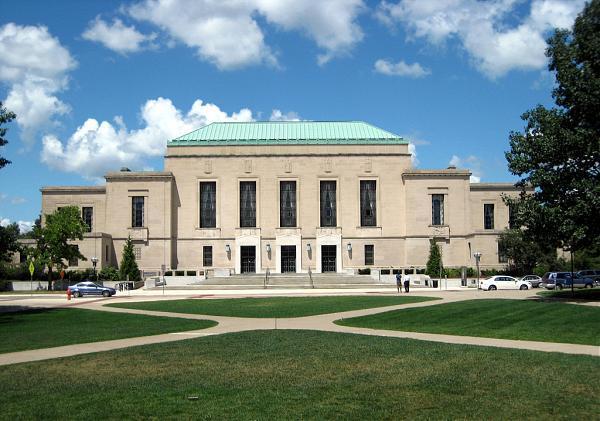
Friday at the Union
Our Friday venue was the Union which is part of the University of Michigan. It’s a decent venue in a cool building and they were wonderful to work with. However, we didn’t end up with as many rooms as we wanted and one of them had to be on a different floor so there was definitely some attendee confusion. Actually that was mostly due to the fact that I completely forgot to print out the Friday schedule and floor plan for attendees which was truly a serious error. But it was helped by the fact that we purposely designed the three tracks that day to reduce the likelihood of attendees changing rooms often. Each track kept the same theme until sessions were over which we hoped would mean those in each room would just remain there the whole time. These tracks were: Developer workshops, business panel discussions and WordPress fundamentals.
Saturday at Rackham
Our Saturday venue was awesome. I’m a huge fan of the Rackham facility and believe it is very well suited for our event. We started the day with registration in the huge lobby and then Cory Miller‘s keynote in the massive Rackham auditorium. Then everyone proceeded to the fourth floor which we had entirely reserved for our event, including the outside terrace which was super cool.
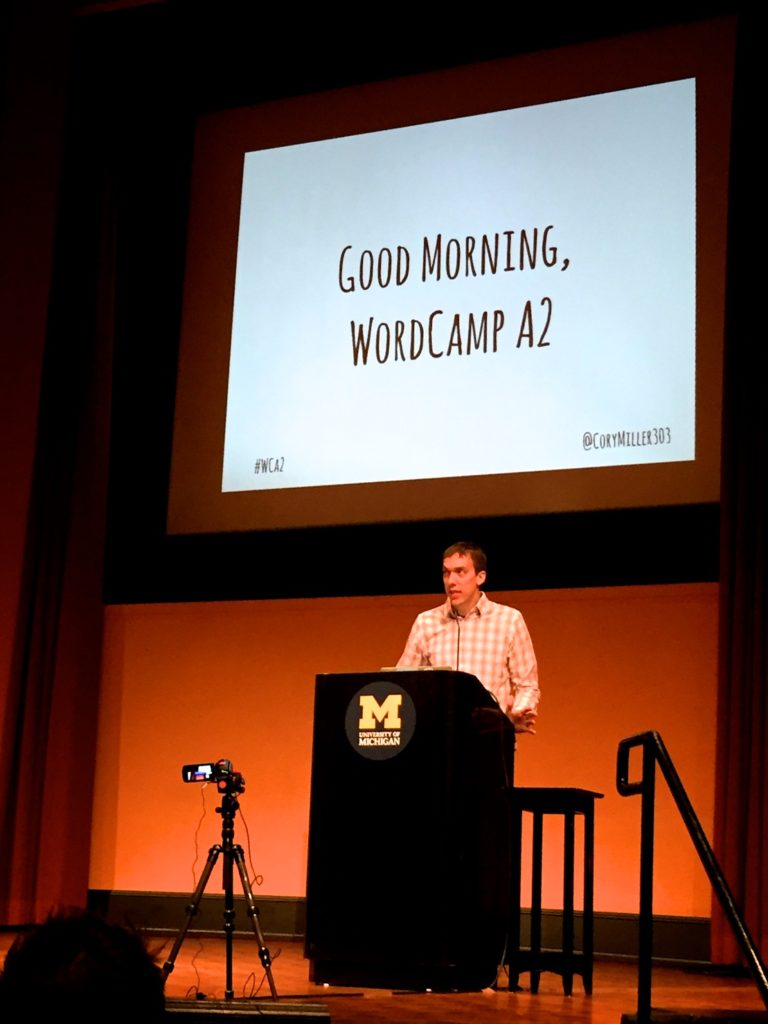
Friday activities
Another experiment we attempted this year was our afternoon group activities on Friday afternoon. Due to the fact that we couldn’t book any rooms for sessions after lunch time on Friday, which was our original plan, we came up with the alternative idea of simply offering groups of attendees more informal activities. This way everyone would have something to do during that time and hopefully also get to build relationships, meet more people and experience beautiful downtown Ann Arbor.
You can see a full list of the activities we offered on our activities page. I was the leader of a group which went on a tour of “The Big House” which is the University of Michigan’s football stadium. It is the largest football stadium in the country and is a pretty amazing place. I’ve been a die hard Wolverine fan my entire life and had never done this tour before so it was an absolutely amazing experience. I received some great feedback from a few other participants (we had almost 20 join us) so it seemed like a cool way to spend the afternoon. I doubt everyone else enjoyed it nearly as much as I did though.
In the end, I was very happy with how the activities went in general and believe they may continue as a more official part of the plan. Especially for multi-day camps, in a city this beautiful and on days like we had where the weather could not have possibly been better, getting everyone outside walking around and having fun together seemed like a perfect fit.
Volunteers
Coordinating a large group of volunteers is always challenging. And this year our event was fairly complicated due to our multiple venues, multiple floors, more attendees and longer schedule. But somehow, we did pretty well. Tons of credit goes to Ben Cool who recruited and assigned most of our volunteers as well as other huge over achievers like Ross Johnson, Ashley Maurer, Steve Beyer, Josh Eby, George Melcher, Megin Worsham, John Parkinson, Michael Parkinson and numerous others who really went above and beyond what we asked for. I was very preoccupied with things like sponsor arrangements, technical issues, answering questions and recruiting emergency substitute speakers (thank you Brian, you’re my hero) that I wasn’t able to be involved at all in numerous important parts of the camp. But our volunteers came through big time and almost everything ran smoothly.
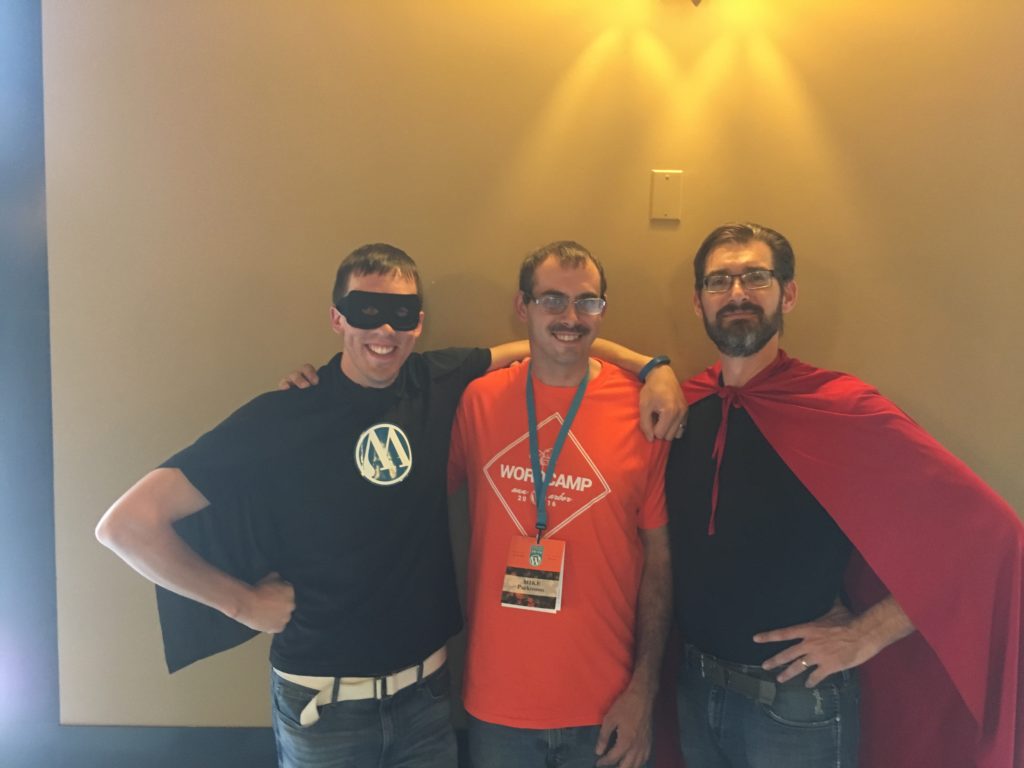
Lunch
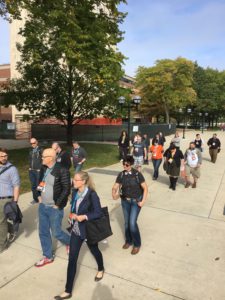
A subject of much consideration and debate, lunch was another important decision for us. In the past, we’ve always had organized lunch groups where a volunteer leads each group to a different restaurant and facilitates discussions about an assigned topic. We’ve always enjoyed this arrangement but did strongly consider catering lunch this year due to our favorable budget situation. But in the end we made the determination that lunch groups were actually more beneficial due to the fact that it got people outside on a beautiful day, walked them through campus, encouraged people with common interests to interact and saved us tons of money in our budget which we ended up allocating elsewhere.
Ultimately, catering lunch is extremely expensive and providing a menu which satisfies everyone is quite difficult. Lunch groups work very well for our camp and will likely continue in the future. Not every WordCamp is fortunate enough to be within walking distance of so many great restaurants so we’re uniquely well equipped for this. I plan on also writing a more detailed description of our lunch groups planning later on.
Video
Video is a recurring source of frustration for me. I’m constantly disappointed and discouraged by how difficult it is for WordCamps in general, not just our own, to consistently record presentations and get them published on WordPress.tv. Most WordCamps assign volunteers to cameras which always seems to result in a certain percentage being recorded incorrectly or not at all. It is evident in the fact that I can be found in eleven videos on WordPress.tv but I’ve done at least twenty seven WordCamp presentations to date.
In our first year for WordCamp Ann Arbor we hired a professional to record our videos. This professional then went MIA and it took us years to get any of the footage that we paid for. We’ve still not received all of it. In our second year we went with 100% volunteers and had all kinds of issues. So this year we went with a combination. We hired a team of professionals to take care of our keynote and one track which significantly lightened the burden for our volunteers. I think it worked out great especially considering one camera stopped working but we didn’t end up needing it.
We still had some issues though. There were five sessions that I know of so far which were either not recorded or were but the quality was poor. All the rest appear to be fine and are mostly in post production still.
Parties
This year we had three different parties: WordCamp Warmup, the speaker/sponsor dinner and the official after party.
WordCamp Warmup
Rebecca Gill suggested early this year that we put together some kind of welcoming event preceding WordCamp to give newcomers an opportunity to meet people and then hopefully feel more comfortable during the actual event. I loved the idea as I believe there are many, many attendees who feel much like I felt when I attended my first few WordCamps: like an outsider. I also know that once I began meeting more people and getting comfortable with WordCamps I also received more value from the events so there’s really a lot to be said for opening up and being as welcoming as possible.
I think this party went pretty well and was largely successful. We easily ended up with as many attendees as we were hoping for. Rebecca along with Cory Miller really put together something nice and I think lots of people had a positive experience.

Speaker/Sponsor Dinner
Ross and I looked hard for someplace special this year to host the private dinner for speakers and sponsors. We ended up reserving a youth center called the Neutral Zone which I believe turned out pretty well. When I get (and give) feedback about these kinds of parties, inevitably noise is one of the first things to come up. A lot of people including myself have little patience for the deafening atmosphere of traditional bars and clubs when hundreds of people are crammed in. The Neutral Zone was a nice private setting with pool tables, foosball, air hockey plus lots of open space which made it possible for conversations to take place without anyone shouting. I’m pretty happy with this place and may consider using it again.
After Party
Peter Shackelford stepped up this year and found a great spot for the after party that I’d never even heard of and would never have found on my own. It was a nice club above a German restaurant within walking distance of our venue. I think it accommodated our group pretty comfortably. The food was great and we added the subtle touch of playing some jazz music in the background, exclusively consisting of tracks from artists which WordPress releases have been named after. Obviously not something anyone would notice but still somehow felt right.
Survey results
And just like that, it was over. A few days after the event I sent out a link to the official survey to all attendees. Not long after I was notified that the results were available for viewing. It took me a moment to prepare myself emotionally before reading the results but in the end, they were better than I expected. I’ve seen a few of them before so I certainly have expectations but these were actually much better than I’d hoped.
There were definitely criticisms and not all constructive but that is normal. I know by now that pleasing everyone isn’t possible. Every year’s survey without fail includes the following comments:
- There was not enough material for beginners
- There was not enough material for advanced users
- There was not enough material for in-between users
Apart from those kinds of comments, there’s always a few people who didn’t like some presentations or wish we would have catered lunch or would have preferred Saturday and Sunday instead of Friday and Saturday. I take all of those comments very seriously and they definitely get brought up during our organizer meetings. But in the end, there were very few surprises in the results, except perhaps the general lack of negative feedback, especially in the areas we worked hardest on like speakers and sponsors.
Every other opportunity to improve we were already well aware of. The most notable include:
- Use the same venue both days.
- Don’t forget to provide printed copies of the schedule for both days.
- Start sessions later in the morning.
- Put the sponsors, Happiness Bar and espresso bar in a larger room.
- Remember bottled water.
- Get more volunteers for lunch groups so the individual groups don’t get too large and also communicate the logistics better.
- Have some more wholesome snacks available during the day (we had donuts and cider which were a big hit but nothing else on hand).
- Empower more volunteers to do things like contact venue tech support without having to find an organizer.
Final thoughts
WordCamp Ann Arbor 2016 was a great time and I feel privileged to have been able to contribute. I believe we did a lot this year to push the envelope and make WCA2 a standout WordCamp. Our new experiments including Friday activities, a scavenger hunt, an espresso bar, WordCamp Warmup and more all seemed to be successful. Our continued traditions including lunch groups, U of M venues and lightning talks all improved and are likely to become permanent staples. An incredible turnout from speakers, sponsors and volunteers made this event something special. I’m so grateful to everyone who was involved.
Related reading
If you’re interested, I’m not the only person who wrote about WCA2 2016. Here’s a few other posts you might enjoy:
- WordCamp Ann Arbor – “It’s the Little Things” by Adam Warner
- WordCamp Ann Arbor Recap 2016 by Russell Aaron
- WordCamp Ann Arbor’s WordCamp WarmUp by Rebecca Gill
Thanks for reading and see you next year!
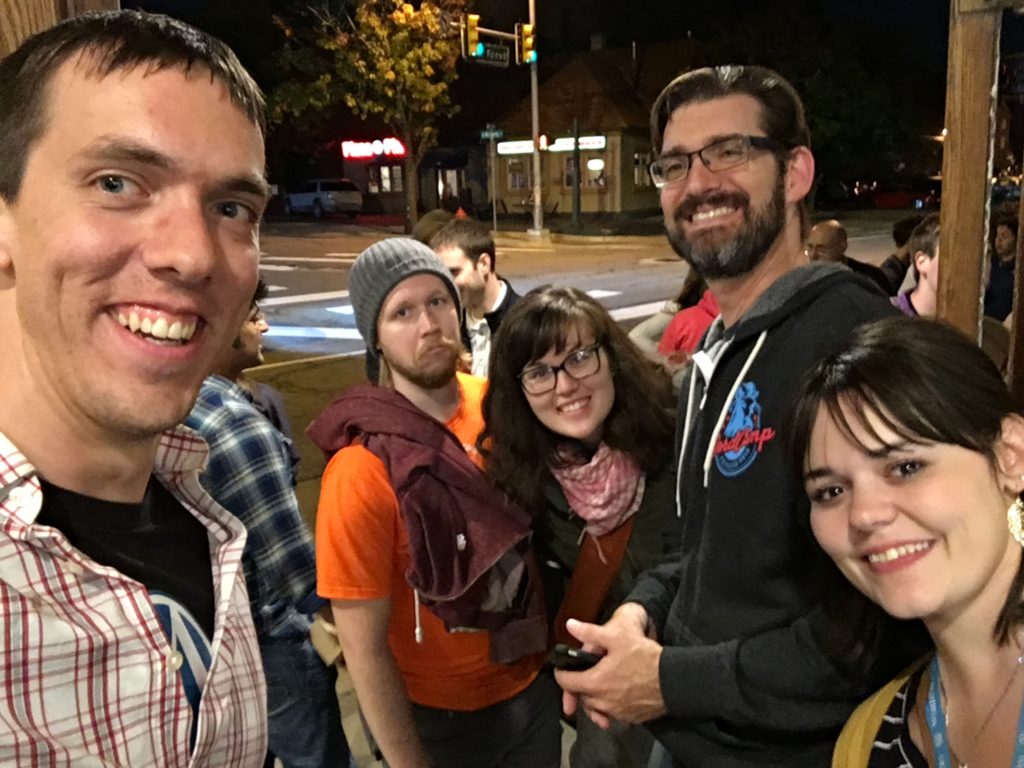
I’ll end with some social chatter about the event from Twitter:
Awesome speaker gifts from #wca2 ! Thanks for having me. 🙂 via Instagram https://t.co/gGRCO1vzbh pic.twitter.com/1rMxKtOrZb
— quiltingshed.bsky.social (@andrea_r) October 17, 2016
Great job by the all the organizers, volunteers and speakers at #wca2! I've been to a bunch of WordCamps and this was one of my favorites!
— mikehale.sol (@mikehale) October 16, 2016
Such a fun time at #wca2 with @MrKyleMaurer and @heyadamsilver trying to #hack @corymiller303 cat loving site at @WordCampA2 yesterday pic.twitter.com/ixXKdZcOgS
— Mariana (@marianajuliette) October 16, 2016
Great to meet so many awesome people at @WordCampA2! Already can't wait for the next one. 👍🏼 #wca2 pic.twitter.com/gbNHE53oav
— Sara Dunn (@Sara11D) October 16, 2016
Thanks to @MrKyleMaurer for putting on a great #wca2. You know it's good when I'm actually attending sessions! 😉
— Seth Alling (@sethalling) October 16, 2016
https://twitter.com/FreshDougSmith/status/787471823856336896
Incredible WordCamp – good people, my people, Michiganders, Okies w/o accents. Thank you @WordCampA2 #wca2
— Cory Miller💥 (@corymiller303) October 16, 2016
https://twitter.com/skarritt/status/787396477492588544
@MrKyleMaurer (the hacker) relentlessly taunting @heyadamsilver (the cyber security hero) at #wca2 Entertaining and informative! #WordPress pic.twitter.com/V5bvQZHoHE
— Adam W. Warner 👋 Let’s chat. DMs open. (@wpmodder) October 15, 2016
.@WordCampA2 has been a top-notch event so far. Thank you so much to everyone who worked so hard to make #wca2 well worth the trip! pic.twitter.com/RYVLtvQLk1
— Jordan M. Roth (@jordanmroth) October 15, 2016
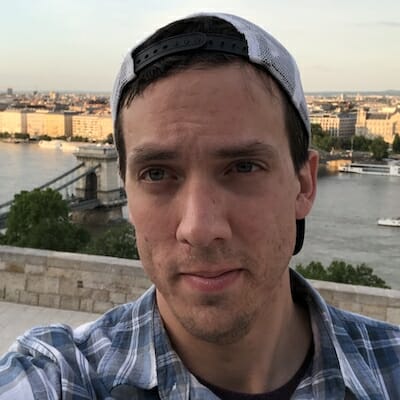

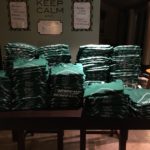
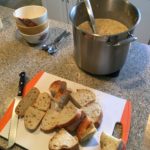

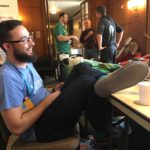
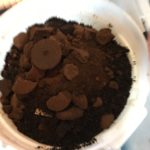
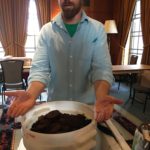
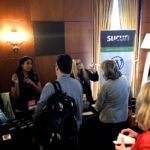
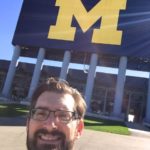
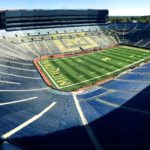

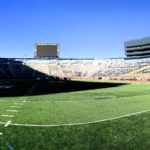

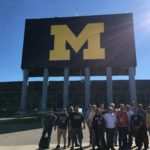
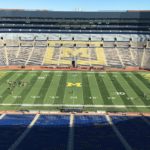
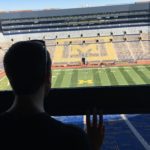
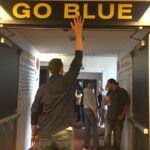
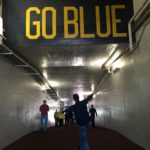
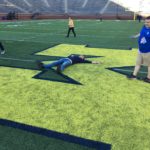
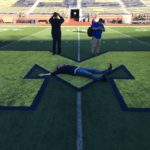
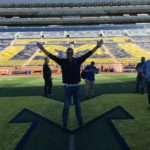
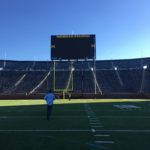

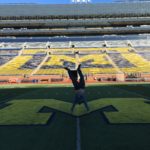
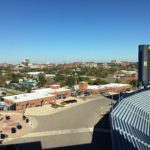
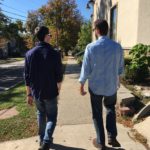

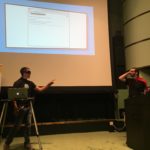
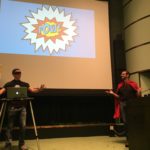
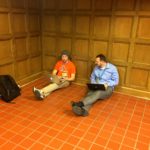


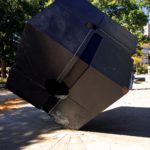
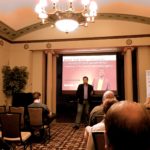
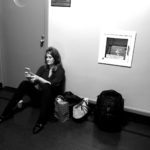

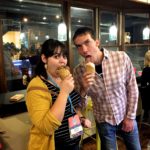
Kyle,
Great write up about WCA2! You can be very proud of the event. The organizers and volunteers did a fantastic job.
I am glad I waited for a few days to read this. It was kind of a shock to see the picture of Mike with you and Adam. I really do appreciate that and I can’t wait to tell him about it.
Mike has many challenges in his life but making friends comes easy to him.He likes to be in social situations and I enjoy taking him to WordCamps to see him interact with people. He considers you and Ashley friends and asks about you often. You honestly don’t know what that means to me and how much I appreciate it.
Also, thanks for taking time to do the interview in the afternoon. I know that spare / quiet time is a commodity for an organizer and I appreciate your patience.
Have a great day my friend.
John
Thanks for commenting John! It was such a blessing having the both of you join us again this year. We all enjoy your company and are also extremely grateful for your help. You and Mike are experienced WordCamp volunteers by now and definitely made a big difference for our event.
It’s always a pleasure spending time with Mike. He’s such a nice guy and I feel privileged to know him.
And thank you for doing the interview! I think it is super awesome that you do that and you’re really good at it. I hope you continue the practice. Truly great work. In fact I’m going to edit this post now and add the video. Thanks again!
Kyle,
An absolutely terrific writeup on the planning and execution of WCA2. I had an amazing time at my alma mater. Ann Arbor changed so much since I graduated in 1993. Doing this event on a weekend without a football game scheduled was genius too. You neglected to mention that but I have to believe that was on purpose. A2 gets insane with traffic and tons of people on game day Saturday. Friday and Saturday was just bucolic. I think that’s the right word 🙂
We will be sharing this in the WordCamp Toronto community actively and I’ve already shared excerpts and the full link to this article and the WordPress.tv talks already online. I will be part of the organizing group for the first time ever for WordCamp Toronto sometime next summer or fall. I think the fact you started 11 months early (or more) is genius really. It’s like table stakes for putting together such an amazing event. I hope we can adapt and use some of the techniques you put together.
THANK YOU FOR TAKING THE TIME TO DO THIS! I will be back next year for sure!
Thank you so much for the kind comment Alex! I appreciate your kind words and support. And I also am very excited to hear that you’re getting involved in the Toronto community. There’s some really great people over there and I know they’ll welcome your help. Maybe 2017 will be the year that I am able to attend WordCamp Toronto for the first time. I hope so.